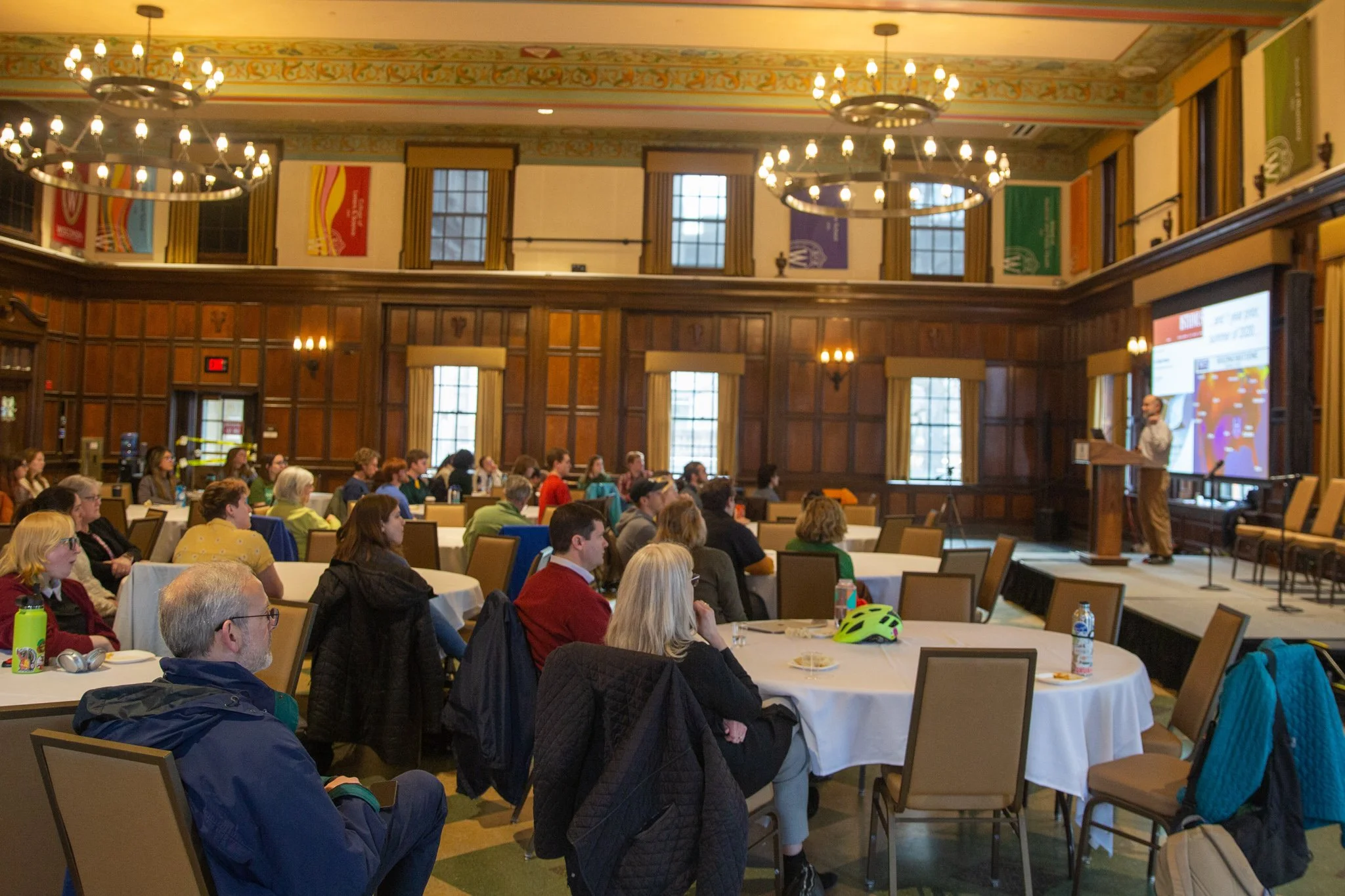
Climate Solutions for Health Lab
Our research program is designed to inform real-world decisions on climate action. This includes:
• Health co-benefits of climate change mitigation policies
• Health benefits from active travel and smart urban design
• Nature-based solutions and sustainable food systems
• Health science and climate policy interface
Changes you can make today
Biking reduces automobile exhaust which contains precursors to ozone and fine particulate matter
In a study on major midwestern cities, we estimated that by eliminating short automobile trips, annual average urban PM2.5 would decline by 0.1 µg/m3 and that summer ozone (O3) would increase slightly in cities but decline regionally, resulting in net health benefits of $4.94 billion/year (Grabow et al. 2012).
Consuming insects provides nutrition (e.g., protein, zinc, folate, vitamin B12) in a more environmentally sustainable way than traditional livestock
A study focusing on Africa and Asia modeled the nutritional benefits of the environmentally conscious consumption of insects. For example, with five grams per day of insect consumption, 67 million (95% uncertainty interval: 49–84 million) fewer people were predicted at risk of protein deficiency (Smith et al. 2021).
Active travel, biking or walking, reduces the risks of certain diseases while also improving air quality
The Health Oriented Transportation (HOT) Model accounts for improved benefits of physical activity from active travel in addition to reduced fossil fuel emissions. Physical activity can help prevent multiple chronic diseases such as diabetes and hypertension (Younkin et al. 2021).
Supporting climate mitigation public policies, especially as many also provide benefits for health and equity
The Climate Solutions for Health Lab researches the health and equity benefits of climate mitigation policies, commonly referred to as co-benefits. Team member Nova Tebbe co-authored a report to the United Nations Paris Agreement Global Stocktake to highlight these policies (Global Climate and Health Alliance 2023).
Why this work matters
Our health depends on a health-promoting environment
A cleaner, local and global environment directly improve the lives of each and every person. We believe there is common ground to move policy forward for human health and solve important aspects of the climate crisis. By showing how health is a driving concern of climate change, we can develop better policies that improve life for people and our planet.




















